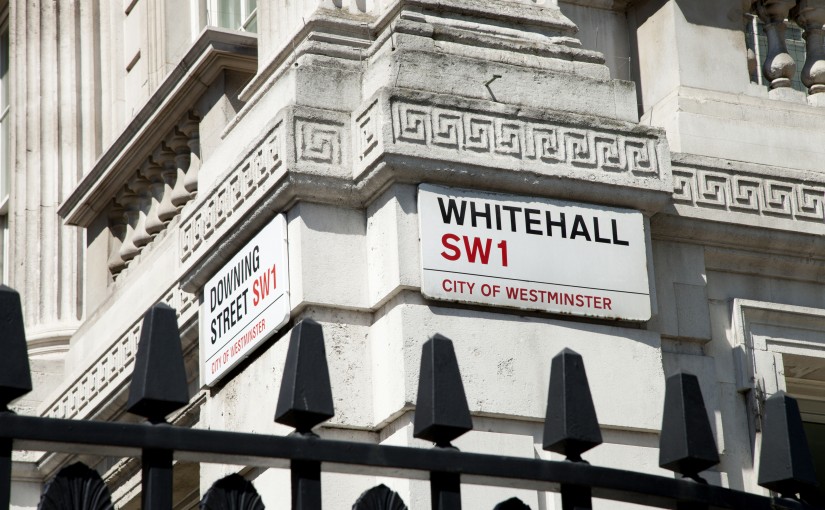In 1960 politics changed forever.
It was the first televised political debate in the U.S. between John F. Kennedy and Richard Nixon.
The significance of the power of television in politics is demonstrated by the fact that those who listened to the debate on the radio thought that Nixon had won, whereas those who watched it on television thought that Kennedy was the clear winner.
These behaviours sent powerful signals to the television audience who made their own judgments about the suitability of each of these candidates to lead the ‘Free World’ at a critical time. And this debate revealed another great truth – once people make a judgment of this kind, it is hard to reverse that effect. Nixon did much better in subsequent television debates but it was too late. The damage was clearly done that first night.
You can see why there was so much argument and discussion in advance of the recent Leaders’ Debate itself – a great debate before the debate even started. The final compromise was a seven-person debate, with only the leader of the DUP excluded. Of course, this was going to be more unpredictable than previous formats used in the UK and brought a new set of social dynamics to bear on the process. It was going to be harder for the politicians involved to maintain their rehearsed and controlled performances in terms of their body language.
There are, after all, many behaviours that might allow the public to see behind the masks of the modern politician, like, for example, fleeting, unconscious micro-expressions revealing their underlying emotional state, be it anger, fear, disgust or contempt, where these micro expressions emerge most clearly when the masking smiles fade.
Then there is the possibility of gesture-speech mismatches when the content of the speech and the message contained in the gesture differ, but where the unconscious gesture may give some insight into the politician’s underlying thoughts. Each politician would also be trying to get their voice heard, and stand out in the debate, but there are gender differences in how politicians can do this. ‘Overlaps’ are an effective form of interruption used by individuals high in dominance and these can tell us something about the various participants in the debate.
So what did we learn that night apart from the fact that David Cameron lip licks and frowns when he is stressed, whereas Nicola Sturgeon has a very high blink rate at critical moments, indicating high levels of stress, even when her voice shows little sign of this. Or, that Ed Milliband shows lots of precision gestures to signal that he has a good grip on economic and other issues, and Nick Clegg displays lots of ‘casual’ gestures reminiscent of Tony Blair. Or that Nigel Farage displays many different facial expressions, especially when he is under attack, or that both Natalie Bennett and Leanne Wood are quite prepared to glance down at their notes, perhaps as a deliberate signal that ideas are more important in the end than appearances, as if content and style can be easily separated in this way.
Maybe, it was the higher order things that we learned, like the fact that Ed Milliband’s over-coached body language looks far too unnatural when it is extended beyond a mere soundbite, and that in real life as the topic changes, we expect to see a different set and pattern of gestures emerging, rather than the mere repetition of the same controlled set of gestures.
In other words, we want to see nonverbal behaviour that can reveal something rather than being designed and rehearsed to reveal nothing. Only his micro-expressions gave us any glimpse into his personality, character or psychological state. We also have a memory, and that Nick Clegg returning to the nonverbal style of 2010 looks like a deliberate attempt to recapture something. Or, that when it comes to interruption battles between politicians, even between politicians and the Chair, Julie Etchingham, Cameron usually comes out on top, and he often overlaps in a very dominant style. But ‘dominance’ rather than statesman-like ‘authority’ might not have been what he was hoping to signal.
But perhaps the most important thing that we learned that night was that the old two-party politics, Labour-Conservative, with attack, attack, attack the other, at any cost, may have gone forever. That was why Nicola Sturgeon appeared so effective: clever, flexible, committed, a different vision, a strong woman in a world of domineering men, body language that was more open and itself flexible, and which supported her message rather than being designed to say nothing at all, of any substance. That was why she stood out. We recognised in her body language that was believable and meaningful in a world of rehearsed control, and suppressed emotions and thoughts. And all that with a blink rate which told us something about the pressure she was really under.

